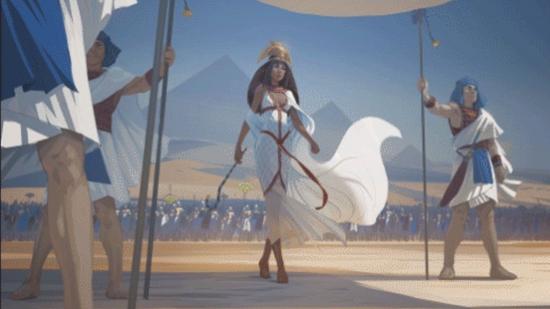Last night, Amplitude Studios – best known as the creator of fantasy 4X game Endless Legend – unveiled its new project. Humankind is a historical strategy game that allows you to alter the story of humanity. But while Amplitude is moving on from its fantasy roots, it’s bringing the lessons learned from Endless Legend’s community with it.
At Gamescom, PCGN spoke to Romain de Waubert de Genlis, Humankind’s creative director said that much of Amplitude’s approach to the world in which Humankind takes place comes from the previous game. “The terrain’s coming from Endless Legend – how we were able to make it technically, game design-wise, to make sure it’s interesting.”
“The battle system is very inspired by what we had in Legend, except in Legend, we wanted to have quick battles, and our community asked us ‘please give us full control over our battles and units.’ So we listened to them, so now they have full control over the battles, over the units. It’s a tactical combat.”
How does humankind’s combat work?
De Genlis goes on to say that that freedom is important, and that “when you play the game, you need to be able to play the way you want, and have all the tools to play the way you want, and not be bogged down to dozens of things all the time. We want you to be playing the game, having really meaningful choices all around you in the game.”
Those choices went on to determine the studio’s approach to combat, forming one of the game’s key differences, particularly when compared to fellow historical 4X series, Civilization.
Humankind’s combat uses armies – “not dozens of units all around, just a few armies, a few cities.” These “tactical, battle-based armies,” which can be combined with other armies in the game, not only make the experience easier to control, but are a feature unique to Humankind – “it’s only us doing that.”
